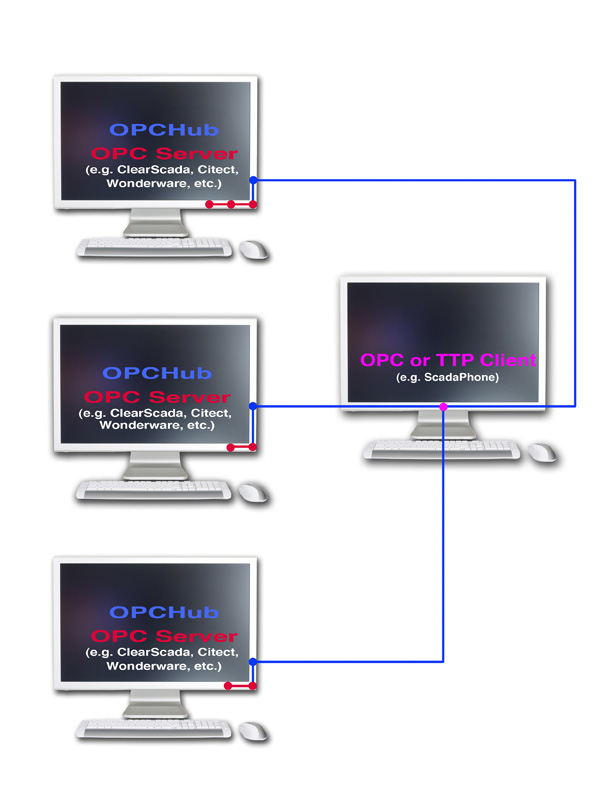Overview
- Facilitates Communications between multiple OPC Servers.
- Acts as OPC Server and OPC Client simultaneously.
- Supports a simplified network communication protocol TTP (by ScadaTEC).
- TTP provides a means for bypassing windows DCOM configuration issues.
OPCHub is a Windowsbased communications application for use in conjunction with SCADA applications that support OPC-DA communications. The purpose of OPCHub is to facilitate communications between multiple OPC servers by maintaining a centralized list of tags that are obtained from an unlimited number of local or remote OPC Server applications. This centralized list (within OPCHub) can in turn be read by local or remote OPC Client applications. OPCHub acts as an OPC Server and an OPC Client simultaneously. This flexibility enables a multitude of configurations to meet virtually any need.
In this example, 3 OPCHub instances gather data from 7 OPC
servers and the TTP client (e.g. ScadaPhone) connects to the
three hubs to obtain data from the 7 OPC servers
In addition to OPC communication (which relies upon Windows COM and DCOM), OPCHub also supports a simplified network communication protocol named TTP (Tag Transfer Protocol); TTP was developed by ScadaTEC to provide a means for bypassing Windows DCOM configuration issues. TTP can be used to link OPCHub to other ScadaTEC applications (such as other installations of OPCHub, ScadaPhone, ScadaLogger, ModbusTagServer, etc...).
FEATURES
- Error Reporting:
- In addition to providing flexible interconnection between OPC/TTP clients and servers. OPCHub has built-in features to report loss of communications.
- Simple Configuration:
- OPCHub’s design strives to present an intuitive, easy to understand user interface.
- Logging:
- OPCHub maintains multiple logs to track system activities.
- Console Security:
- While in Run mode, OPCHub prevents unauthorized operators from modifying sensitive settings that could adversely impact performance.
- OPCHub Trial Software:
